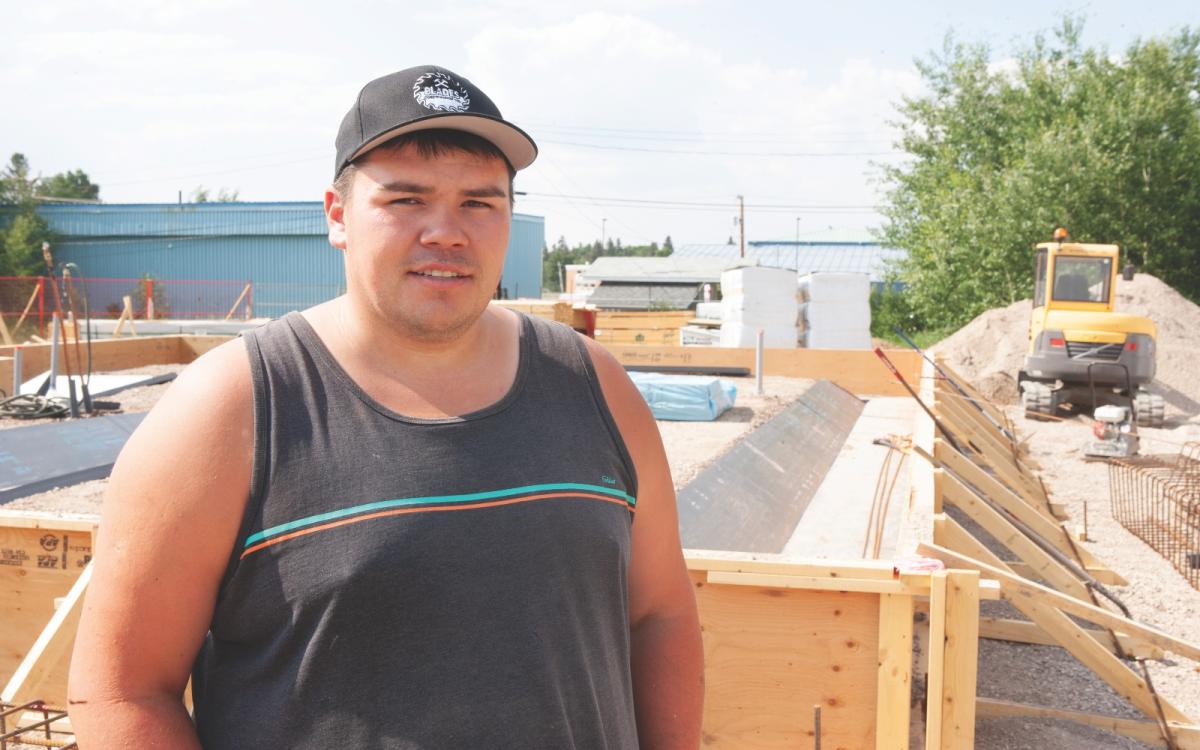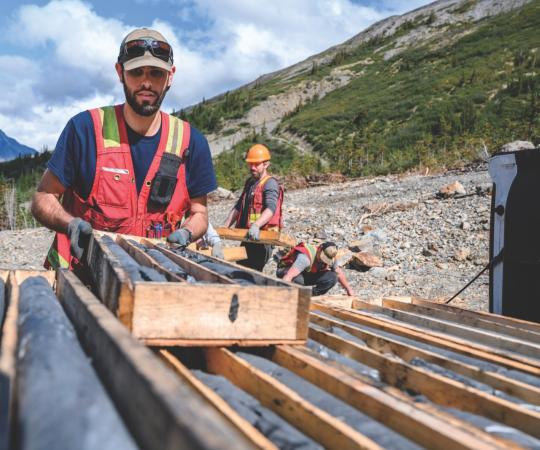The entrepreneurial bug bit Jeremy Beamish when, at age 15, he started a lawn-mowing service in Fort Smith. It was just a question of what kind of business he would run. Since he often helped his dad out with carpentry work as a child, it seemed natural that he would become a self-employed carpenter. That happened in 2018, and the work was good. So good, that Beamish and his fiancée, Kristen Froese, decided to start a proper business. In 2020, they founded Blades Construction, which now employs six people. Business is still good, Beamish says, but the learning curve for starting and running a company has been steep.
It must be a big step to transition from being self-employed to starting a proper business. When I first started, I was a sole proprietor, so everything was pretty basic. Turning that into a business was a lot of work. There’s lots of figuring out to do and lots of learning… My fiancée, Kristen, helped me and she’s been doing a lot of the paperwork stuff. But when it came to getting started, the whole process was really vague. There’s no outline of how to start a business in the NWT. I don’t know if the government lacks the support to do that, but there wasn’t very much help.
How did you figure it out? I went to Thebacha Business Development Services and they were quite helpful.
[Editor’s Note: Thebacha Business Development Services is a Community Futures development corporation that provides services such as entrepreneurial training, loans, and other supports to business in Fort Smith, Lutsel K’e and Fort Resolution.] I worked with Linda Martin. She was very helpful. If I had any questions, we would set up a meeting. She got us all figured out.
So, you’re not on your own anymore. Are you spending a lot of time supervising staff? I have two journeymen carpenters, one apprentice, a painter, and two other skilled carpenters who work for me. Luckily, they can run their own jobs and take care of work on their own. They can figure out problem solving on their own. That’s key so I don’t have to be everywhere at once…
I’m trying to find the time to take an hour or two hours a week to go home and do the administrative stuff that I usually do in the evening. Kristen plays a big part in the business. She is a partner in the company and takes care of most of the paperwork. Without her, I don’t think I would have been able to do what I do today.
Have there been challenges you didn’t expect? I’m starting to get more of the bigger contracts for the government. We just finished one of the public RCMP houses in Fort Smith, which was a big learning curve. There was a lot more paperwork and a lot more dealing with the government. I was 24 when I took on that contract (from 2020-2021) and I thought it was like any other job. It turned out that it was a lot more technical, a lot more paperwork. Once I got that done, it changed my perspective on what I want to do and how to do it better.
What has been the biggest challenge so far? Now that I’m moving up to the bigger jobs and more employees, there definitely is more of a challenge, with doing the books and managing your time at home with the family. My struggle is that I don’t want to give up working and doing the day-to-day carpentry. I want to continue working while also running my business, which is a hard thing to overcome…
Some days, I think I should hire someone to sit there and be the manager of the company. But on other days, I don’t want to do that—not only to myself but to my guys, also. We have a great working relationship and we’re quite capable of doing the work.
Do you have advice for others considering the transition from self-employment to launching a business? It takes a lot of dedication, a lot of planning. If you’re not good with dealing with stress, I wouldn’t recommend starting a business. There is a lot of stress that follows along, especially if you’re going to start having employees. Then there’s that much more stuff you gotta do. One of the good things to remember, though, is that you should leave work at work. Try not to bring it home.










